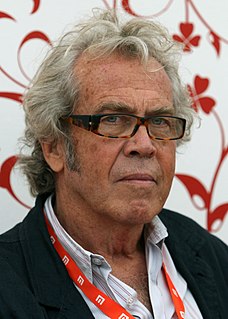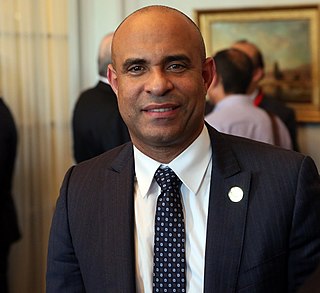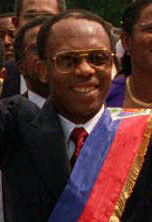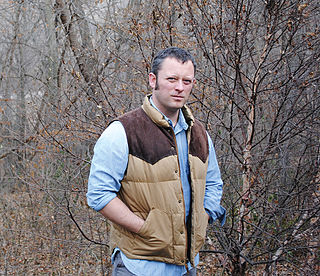A Quote by Jørgen Leth
Haiti is the best cure against melancholy; it is also the most creative place for me to be. My productivity has increased enormously since I moved to Haiti. That's where I write my stories, develop my ideas and write nonstop, so it's a productive time, not a sleepy time.
Related Quotes
There is this split between the Haiti of before the earthquake and the Haiti of after the earthquake. So when I'm writing anything set in Haiti now, whether fiction or nonfiction, always in the back of my mind is how people, including some of my own family members, have been affected not just by history and by the present but also by the earthquake.
Those of you who have been there [Haiti] know it is one of the most beautiful countries in the world. It has everything. It has everything above the ground, and everything under the ground.... It is an amazing place. I strongly recommend that whenever you get a chance, if you haven't been there, that you go to Haiti. I think it was a certain Queen of England who said that after her death "Calais" would be found written on her heart. When I die, I think that "Haiti" is going to be written on my heart.
Man is still by instinct a predatory animal given to devilish aggression. The discoveries of science have immensely increased productivity of material things. They have increased the standards of living and comfort. They have eliminated infinite drudgery. They have increased leisure. But that gives more time for devilment. The work of science has eliminated much disease and suffering. It has increased the length of life. That, together with increase in productivity, has resulted in vastly increased populations. Also it increased the number of people engaged in devilment.
After the Dance was my first attempt at nonfiction. I'd never really participated in carnival, and I really wanted to go. It sounded like a wonderfully fun thing to do. And I wanted to write something happy about Haiti, something celebratory. And going to carnival gave me a chance to do that, because it is one of the instances in Haiti when people shed their class separation and come together.
If any country was a mine-shaft canary for the reintroduction of cholera, it was Haiti - and we knew it. And in retrospect, more should have been done to prepare for cholera... which can spread like wildfire in Haiti... This was a big rebuke to all of us working in public health and health care in Haiti.
Sometimes people who want to understand Haiti from a political perspective may be missing part of the picture. They also need to look at Haiti from a psychological perspective. Most of the elite suffer from psychogenic amnesia. That means it's not organic amnesia, such as damage caused by brain injury. It's just a matter of psychology.
I never considered myself as somebody in exile because, different to my father who, yes, was in exile because he left Haiti as an adult, for me it was just to be somewhere else. I carried Haiti with me everywhere, but I also carried, you know, my youth in a public school in Brooklyn. It's part of who I am as well.



































